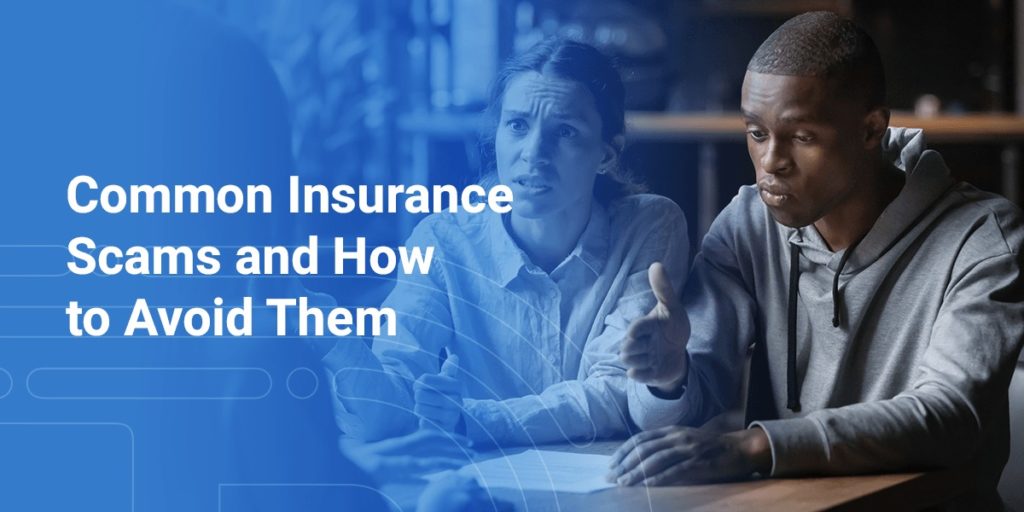
Why is it important for you to understand these different types of insurance fraud and protect yourself against them?
According to the FBI, insurance fraud cost over $40 billion per year — not counting health insurance scams. The high cost of these scams results in more money for insurance premiums. The average family may have to pay $400 to $700 more per year due to these insurance scams.
Knowing when an insurance scheme is unfolding and understanding how to avoid becoming a victim of an insurance scam can save you thousands of dollars in insurance along the way.
Keeping an eye out for various insurance scams can be tricky. Be sure to be on the lookout for these common scams:
In trying to avoid these scams, it is crucial to know that no one is immune to insurance scams. The perpetrators of insurance scams target victims of all incomes, ages, education, location and ethnic groups. Falling victim to a scam does not mean you are weak or stupid — scammers may have years of experience and know exactly how to take advantage of their victims.
Also, while most times it seems the insurance companies bear the burden of these frauds, it’s actually insurance policyholders, like you, who suffer the higher premiums that these frauds lead to.
The goal of this article is to equip you with the right information to combat the most common car insurance scams. While some are hard to avoid, the tips we share in this article will help you identify them, avoid them and report them to the appropriate agency.
Have You Fallen Victim to a Scam? Contact Us Today
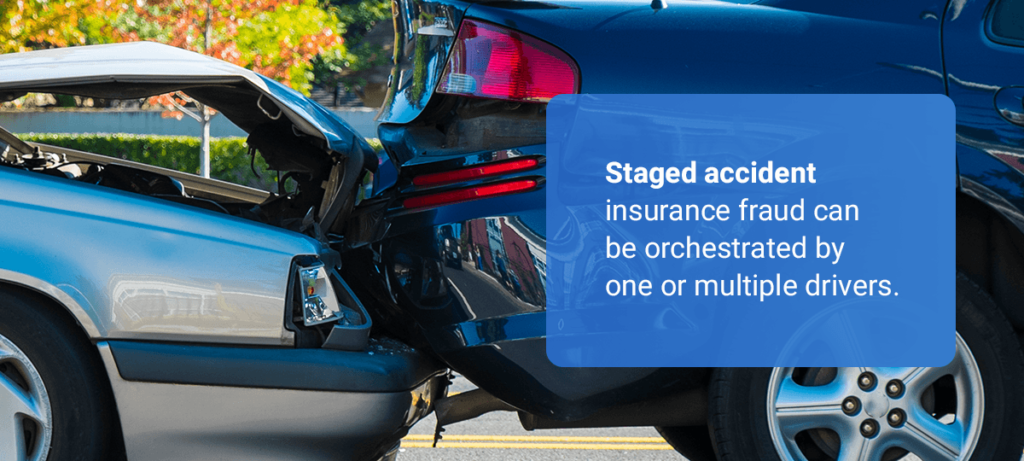
Insurance scammers can orchestrate accidents that put you at fault so they can get paid for damages and injuries from your insurance company. Staged accident insurance fraud can be orchestrated by one or multiple drivers.
There are a few ways staged accident insurance schemes play out:
How do you proactively figure out that a potential staged accident is about to happen? The primary sign is reckless driving. If you spot a person driving recklessly, a staged accident may be brooding.
Here are three tips to avoid staged car accidents scams:
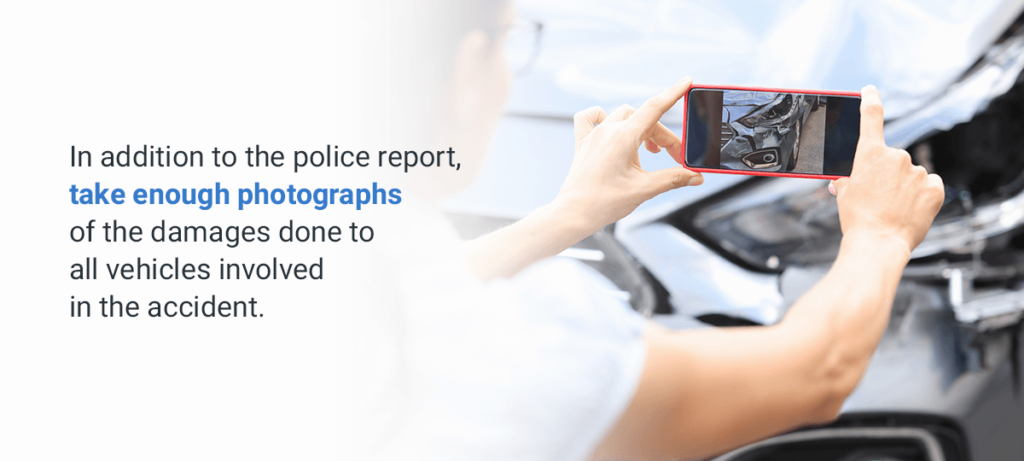
In addition to staging an accident, scammers can exaggerate or invent damages to their vehicles. This is not limited to only staged accidents — drivers who are involved in legitimate accidents can also engage in this insurance scam.
Scammers who stage an accident can further cause more damage to their vehicles just to increase how much they file in their insurance claims. Also, a victim in a legitimate accident can take advantage of the situation to cause more damages to their vehicle to jack up the insurance claim.
Scammers may also claim the crash with you is responsible for damage to their vehicle that is from a previous accident. In addition to that, insurance scammers can add ghost passengers to insurance claims just to pad up the amount that they receive.
Here’s how to fish out a potential invented damage scam. After an accident, if the not-at-fault driver tells you not to involve or inform the police, you may just be about to be ripped off. This is because the absence of a filed police report provides the scammer with the opportunity to cause more damages to their vehicles in private and file an inflated insurance claim.
Here are four ways to avoid becoming a victim of invented damage scams:
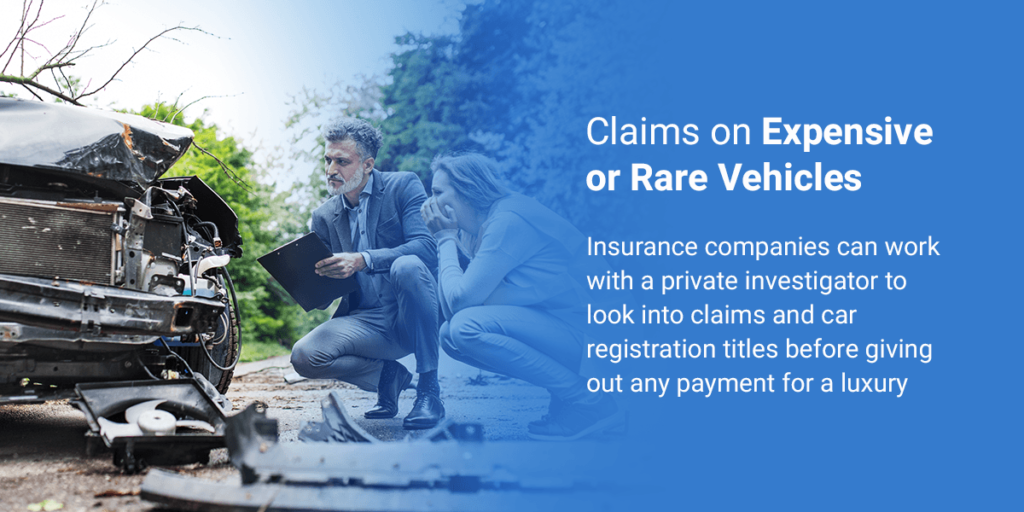
Insurance scammers can submit claims for fictitious expensive or rare vehicles just to make large insurance claims.
An insurance scammer can conjure up a vehicle registration or title for an expensive but fictitious luxury vehicle with an insurance company. Then, they will later report that the fictional car was stolen and file an insurance claim.
Perpetrators of this scheme can also insure an actual expensive or rare vehicle and then hide the vehicle, get a friend to steal the car or sell it to an international client or auto body part shop where the insurance company can not track it.
In many of these fraud cases, the perpetrator goes home with the price of two cars — one from the sales of the actual car and the other from the insurance payment.
If an insurance holder registers a car in a state with low theft and low premiums but uses the car in high theft and expensive parts of the county, this kind of insurance fraud may just be underway.
Insurance companies can work with a private investigator to look into claims and car registration titles before giving out any payment for a luxury car.
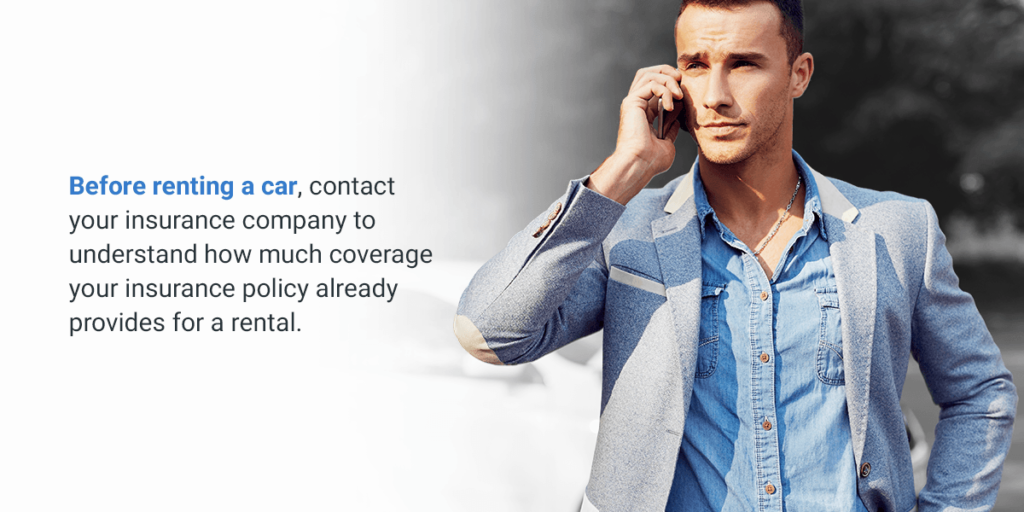
Car rental companies also participate in insurance scams on unsuspecting customers in a rental contract.
To scam unsuspecting customers and make them pay double premiums, some car rental companies may decline to rent you a car if you refuse to buy their insurance. But if you have a vehicle with collision insurance or comprehensive insurance, your insurance company probably already covers risks for both your personal car and for rental cars. By asking you to pay for risks you already have covered, these rental companies want to get away with a free insurance premium payment.
Other rental car scams involve fictitious cars — scammers may create an authentic website and have a seemingly-legit rental car business but have no intention to actually rent cars to customers. They will ask you to pre-pay for your rental car upfront but then refuse to provide a car for you.
Additionally, rental companies can also report damages to their vehicles that were not inflicted by your use or during the duration of your rental. They may also tack on unlisted charges for things like gas or GPS navigation.
If a car rental company is refusing to rent you a car unless you pay for insurance coverage, even after you’ve made it clear that you already have personal auto insurance that covers all the risks their insurance package wants to cover, they probably want to increase their bottom line with your money.
Also, look out for pushy rental agents. Once you feel a car rental agent is trying to force you to pay for their insurance package or trying to hurry you to sign the contract and make the payment without reading the small print, a scam may just be brooding.
There are four types of insurance coverage a car rental company may want you to buy before renting a car:
Here’s how to avoid being scammed to pay any of these insurance packages when you already have them covered.
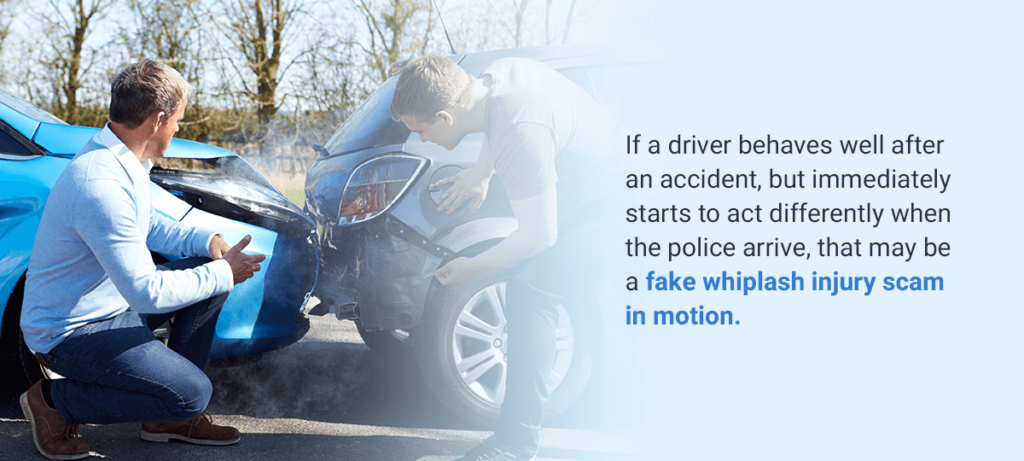
In addition to falsifying damages done to vehicles, scammers can also falsify injuries to their bodies to file bogus insurance claims.
If you get involved in an accident, the injured driver — or scammer — may report a whiplash injury because whiplash is difficult to disprove and does not show up on an X-ray.
Whiplash injuries are mostly diagnosed through oral interviews and analysis of symptoms by doctors. Scammers can report all the right symptoms or pay unscrupulous medical professionals to corroborate their story and report a whiplash injury so they can file for a larger insurance payout.
Here’s how to know if a possible fake whiplash injury scam is about to unfold.
If a driver behaves well after an accident, but immediately starts to act differently when the police arrive, that may be a fake whiplash injury scam in motion. Also, look out for inconsistencies in the story of the driver when describing their pain and injuries.
Another red flag to take note of is if the not-at-fault driver asks you not to inform the police of your accident. They may just be planning to file a fake whiplash injury claim.
Always file a police report at the accident scene or as fast as you can after handling emergencies. This should be done no matter how minor the accident seems. Always filing an immediate report enables you to have an official record of the accident so no future false claims can be made by fraudulent drivers.
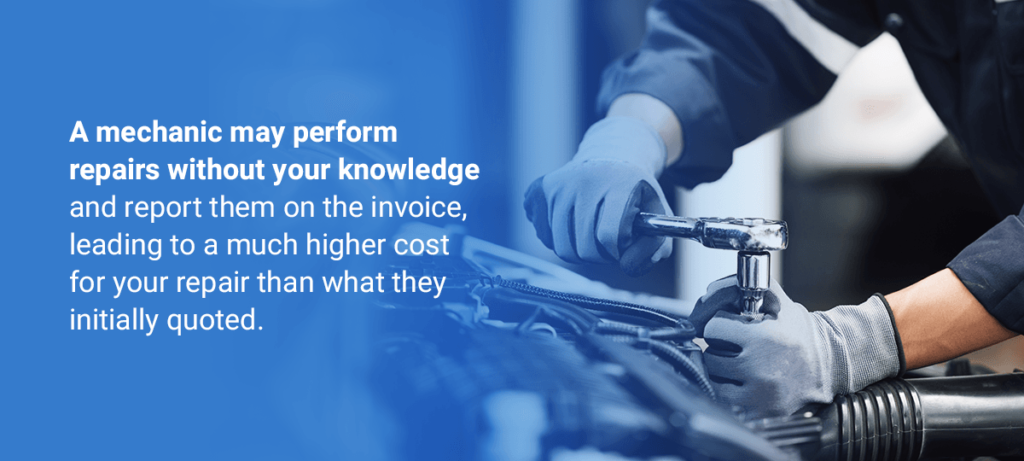
Mechanics and tow-truck services can also rip you off.
Scam repairs are mostly perpetrated in three ways:
Here’s how to identify possible scam repair insurance frauds:
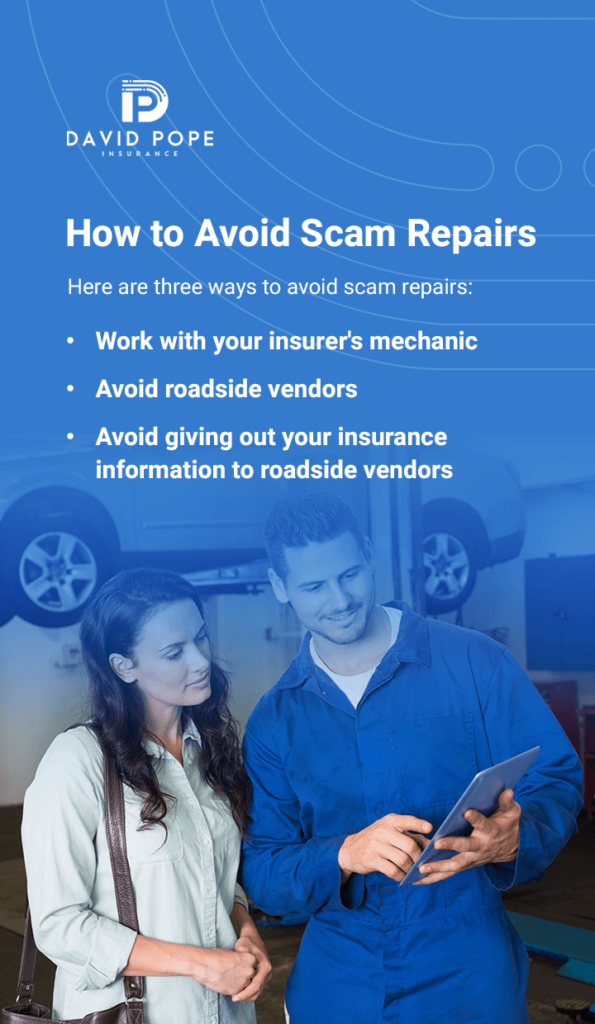
Here are three ways to avoid scam repairs:
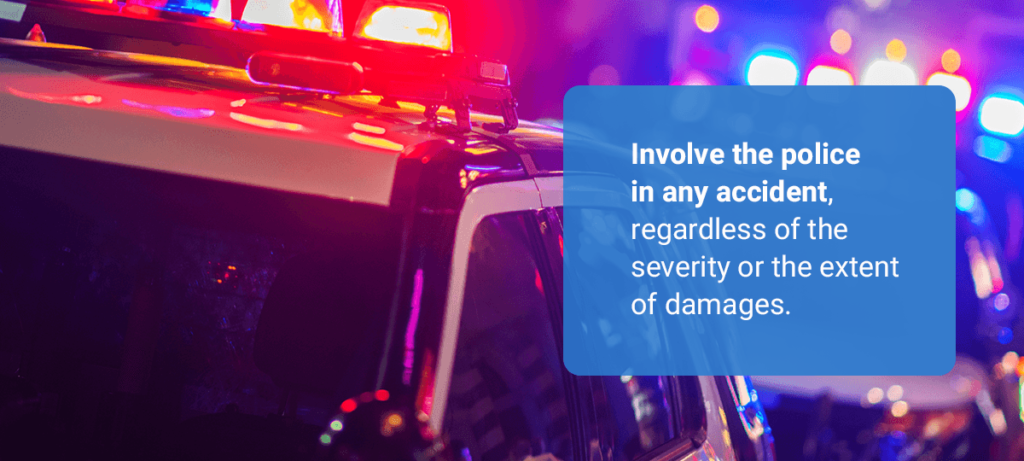
On a general note, here are seven tips to help you avoid most insurance scams:
With the tips we’ve shared in this article, you can identify and potentially avoid becoming a victim of insurance scams.
However, some scams may happen too fast for you to identify or avoid by yourself. When this happens, you can report the scam to the authorities. The National Insurance Crime Bureau provides hotlines and online forms to report insurance fraud. You can also report them anonymously through this medium.
In addition to the National Insurance Crime Bureau, you could also report insurance fraud to your local FBI offices and the Coalition Against Insurance Fraud.

Who you choose as your auto insurer impacts how much you save in insurance and the assistance you get when you need them. In trying to overcome auto insurance scams, the best insurance company will work with you round the clock to get the best insurance deals and help you avoid insurance rip-offs.
With over 20 years of experience helping citizens in Missouri and its environs, David Pope Insurance provides the best insurance deals.
This is why people love David Pope Insurance:
Contact David Pope Insurance for all your insurance needs and get a quote today.